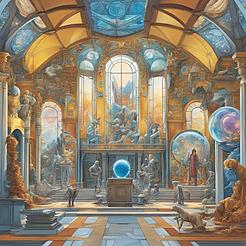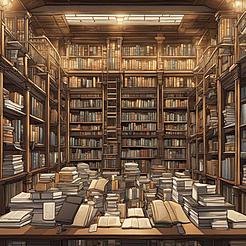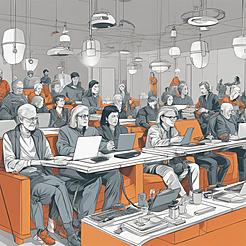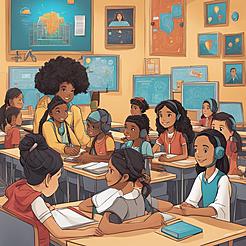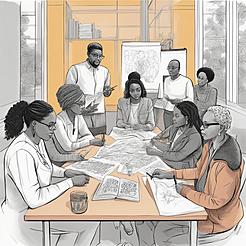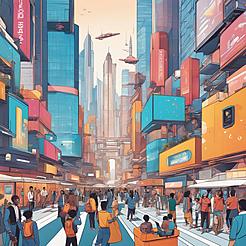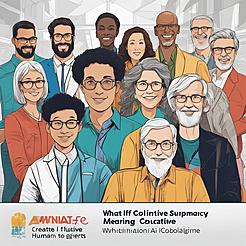 henrydjacob
henrydjacob- Chapter
- 2024-04-15

In the grand tapestry of human history, the evolution of artificial creative intelligence stands as a testament to our relentless pursuit of innovation. From the early days of algorithmic experimentation to the current era of machine learning marvels, the journey of AI-powered creativity has been nothing short of awe-inspiring. As we delve into the annals of this technological odyssey, we are met with a mosaic of milestones that have reshaped our understanding of machine creativity and its implications for human cognition.
The inception of AI-powered creativity can be traced back to the groundbreaking work of pioneers like Alan Turing, who envisioned a future where machines could exhibit intelligent behavior. Turing's seminal paper on computing machinery and intelligence laid the foundation for the exploration of artificial intelligence, setting the stage for a revolution in creative computation. Over the decades, researchers and innovators have pushed the boundaries of AI, unlocking its potential to generate art, music, and literature with astonishing proficiency.
One of the early breakthroughs in AI creativity came in the form of algorithmic art, where computer programs were used to generate visual compositions. Artists and technologists collaborated to develop algorithms capable of producing intricate patterns, abstract designs, and digital masterpieces that rivaled human-created art. The marriage of computational logic and artistic expression gave rise to a new genre of creative exploration, blurring the lines between human and machine creativity.
As AI continued to evolve, its foray into music composition captured the imagination of creators and audiences alike. Researchers developed algorithms that could analyze existing musical pieces, identify patterns, and generate original compositions in various styles and genres. The ability of AI to compose melodies, harmonies, and rhythms opened new avenues for musical experimentation, challenging conventional notions of human musicality and creative expression. From classical symphonies to contemporary beats, AI-powered music compositions pushed the boundaries of sonic innovation, captivating listeners with their emotive resonance.
Literature, often considered the pinnacle of human creativity, also fell under the purview of AI's creative endeavors. Text generation algorithms, fueled by vast datasets of written works, were trained to mimic the style, tone, and structure of human-authored literature. AI-generated stories, poems, and essays emerged, blurring the distinction between human and machine storytelling. The rise of AI authors posed profound questions about the nature of authorship and the essence of literary identity in an era where algorithms could craft compelling narratives with uncanny precision.
The implications of machines producing creative works are as profound as they are provocative. On one hand, AI-powered creativity offers unprecedented efficiency, innovation, and scalability in artistic endeavors. Machines can generate vast amounts of art, music, and literature in a fraction of the time it would take a human creator, democratizing the creative process and expanding the frontiers of artistic exploration. However, this efficiency comes at a cost - the risk of diluting the authenticity, emotional depth, and human touch that define truly transformative creative works.
The evolution of artificial creative intelligence raises fundamental questions about the nature of creativity, the role of human cognition in artistic pursuits, and the future of innovation in a world increasingly shaped by algorithms. As we witness the progress of AI in generating art, music, and literature, we are compelled to confront the complexities of this technological revolution and its implications for our cognitive abilities. How will our perception of creativity evolve in a landscape where machines can rival human artistic expression? What challenges and opportunities lie ahead as AI-powered creativity continues to push the boundaries of innovation?
The journey of AI-powered creativity is a testament to the ingenuity of human minds and the transformative power of technological advancement. As we navigate this ever-changing landscape of artificial intelligence and creativity, we must tread carefully, honoring the legacy of human creativity while embracing the possibilities that AI offers for artistic exploration. The evolution of artificial creative intelligence is a testament to the boundless potential of human-machine collaboration, forging new frontiers of creativity and innovation that redefine the very essence of artistic expression.
References:
- Turing, A. M. (1950). Computing machinery and intelligence. Mind, 59(236), 433-460.
- Boden, M. A. (1994). What is creativity? In M. A. Boden (Ed.), Dimensions of Creativity (pp. 75-118). MIT Press.
- Jukic, T., & Mestrovic, A. (2020). AI in Music: From Composition to Consumption. Routledge.
